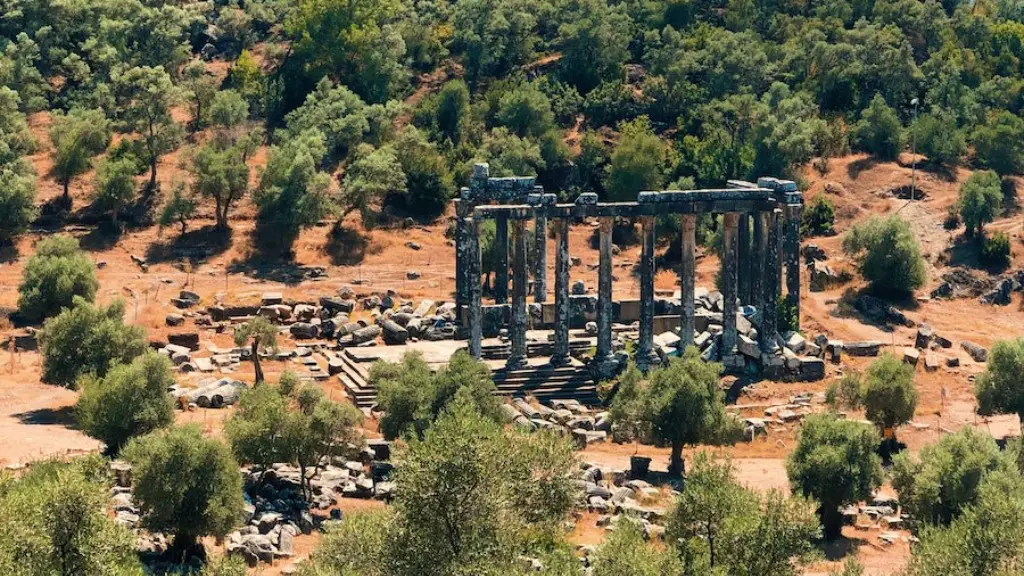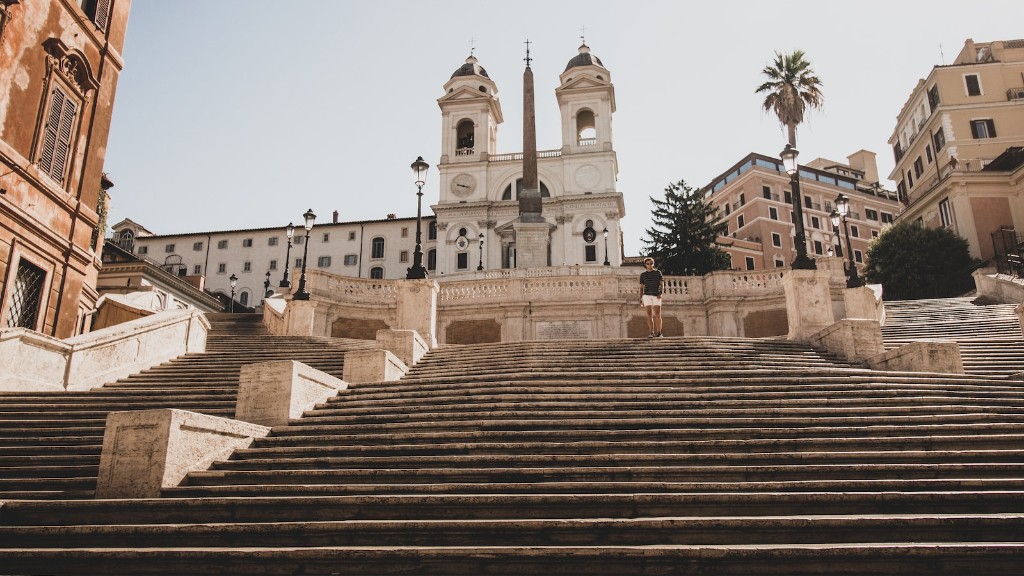The rise of Ancient Rome was one of the most remarkable events in human history. Ancient Rome was a complex, sophisticated civilization and one of the major economic, military and politicalpowers of its time. Its influence can still be seen in many aspects of modern culture. But why was Ancient Rome so important?
Archaeologists and historians have studied Ancient Rome for centuries to determine why the city was so influential. Many scholars agree that its vast wealth, strong government and influential art and literature played a role. Ancient Rome was arguably the wealthiest city in the ancient world and, as a result, was able to fund some of the most ambitious engineering projects of its time. From aqueducts and road systems to temples and palaces, the city was home to some of the most impressive monuments and structures ever built. It also boasted a powerful central government, headed by the Senate, which was able to provide law and order throughout its vast empire.
Ancient Rome was also home to some of the most influential writers, thinkers and artists of the ancient world. The Romans, who spoke Latin, wrote works that are still studied today. Poets such as Virgil, Horace and Ovid expressed the ideals of Roman culture, while writers such as Pliny and Tacitus wrote history of lasting significance. Artists such as sculptors and painters produced works that are still admired. And the Romans were among the first people to use concrete for building construction, which is still widely used today.
In addition to its wealth, strong government and artistic achievements, Ancient Rome also played a major role in spreading the early Christian religion. The city was home to a number of influential early Christian leaders, most notably St. Paul, who played a crucial role in spreading the religion to other parts of the Roman Empire. In 313, Emperor Constantine made Christianity the official religion of the Roman Empire, ushering in a new era of religious freedom and influence.
All of these factors contributed to the unprecedented rise of Ancient Rome and its lasting legacy. The city was powerful, wealthy and influential, and its culture and works continue to shape our understanding of the ancient world today.
Economics
One of the most important aspects of Ancient Rome was its economy. During its peak, it was one of the wealthiest cities in the world and this wealth was achieved through a variety of ways. Rome had access to a variety of resources and commodities, such as metals, minerals, slaves, olive oil, and wine which were all highly traded resources. As a result of this, Rome had a very secure source of income, which allowed them to become financially very strong.
Rome was also known for its taxes, which were used to fund many of their ambitious projects such as aqueducts and roads. They also maintained peace throughout their empire through their well-maintained military, which was also paid for by taxes. This helped them spread their influence and wealth even farther. The city was also home to many banks and financial institutions, which helped to further strengthen the economy and make Rome even richer.
Military
Another major aspect of Rome was their military. The military was one of the most powerful armies in the entire world and was made up of highly trained soldiers and generals. The Roman army was well organized, efficient, and powerful and was able to quickly mobilize to any part of the empire to protect it from enemies or to expand its influence. Rome was also very successful at tactics and strategy, which allowed them to easily defeat their enemies and gain territory.
Rome was also known for its naval power which, although not as strong as their land army, was still highly effective. Rome was able to maintain control of the Mediterranean Sea through their naval strength, which allowed them to transport goods and resources, as well as troops, throughout their empire more quickly. This also allowed them to more easily defend against invaders.
Politics
Rome’s government was also a major factor in its success. The government was centered in the Senate, which was made up of some of the wealthiest and most influential members of society. These members were responsible for making decisions that affected the entire empire and they accomplished this by having a considerable amount of power and influence. In addition to the Senate, Rome was also ruled by an emperor, such as Augustus, who had absolute power and was able to make laws and policies. This allowed Rome to have a much more organized and structured government, which helped to ensure order and stability in the empire.
Culture and Religion
Rome was also highly cultured. They had a diverse and vibrant culture which was further enhanced by their strong ties to the Greek world. Many aspects of modern culture originated from this cultural exchange, such as art and literature. The Romans also had a very advanced religion which was strongly tied to their cultural identity. This religion was a major source of comfort and security for the citizens of Rome and it helped to unite them.
Architecture and Engineering
Rome was also notable for its impressive architecture and engineering. They were among the first to use concrete, which allowed them to build unrivalled structures that were able to stand the test of time. These structures included roads, aqueducts, temples, and palaces. This engineering was a major factor in Rome’s success and these structures still exist today, making it possible to explore and learn more about Rome’s history and culture.
Legacy
Today, the legacy of Ancient Rome is still felt in many areas, from our language and literature to our art and architecture. Rome’s influence and importance can never be denied and its legacy will live on long after it is gone. Its legacy to the present day is the example of its powerful and influential civilization, which was able to rise from humble beginnings to become one of the most powerful and influential cities in the Ancient World.



